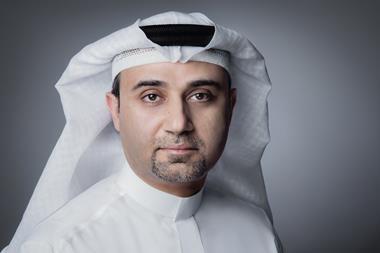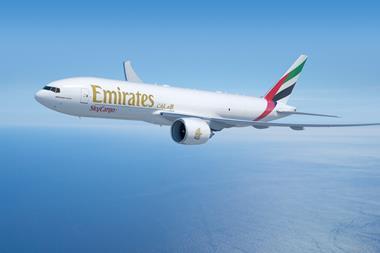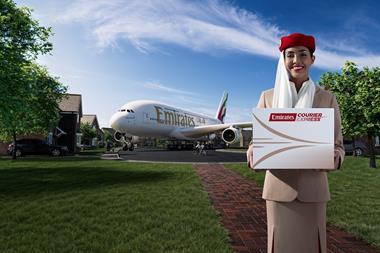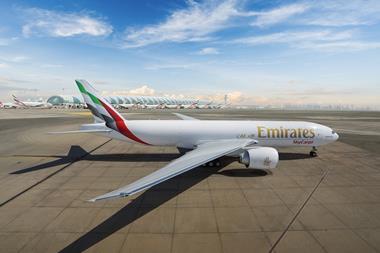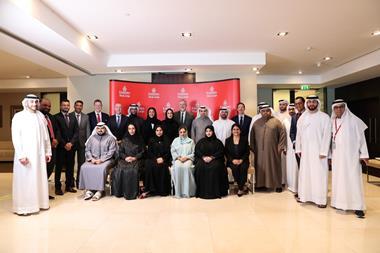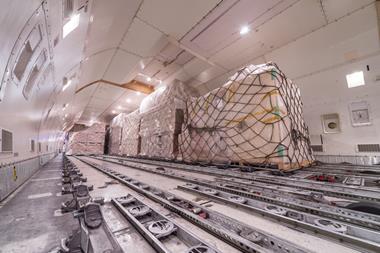
Photo: Emirates SkyCargo
Emirates SkyCargo has added two more Boeing 747 freighters as it anticipates further demand growth in the air cargo market this year.
The company said the two additional wet-leased 747 aircraft has boosted its freighter capacity by 15% compared with a year ago.
Commenting on the decision to add more capacity, Badr Abbas, divisional senior vice president, Emirates SkyCargo, said: “Throughout 2024, we made significant investments in new and leased freighter aircraft to address the evolving supply chain and air cargo demands around the world to ensure we had a stable supply of capacity to best serve our global customers.
”This remains a key priority for Emirates SkyCargo, as we set our sights on the next era of growth.
“We anticipate that demand will continue to boom, reflecting Dubai’s prominence as a global logistics hub. Enhancing our cargo capabilities is essential to support Dubai’s Economic Agenda, enabling us to reach new destinations, bolster our current operations and elevate our specialist product portfolio.”
The multi-year lease for the Boeing 747s was signed with the Compass Group and the Dubai-based airline said that the two will discuss further expansion of the collaboration.
Following the addition of the two freighters, Emirates’ all-cargo fleet now consists of 10 Boeing 777Fs and six Boeing 747Fs. It also has 13 more 777Fs on order for delivery over the next two years and is considering an order for next generation 777-8Fs or Airbus A350-1000Fs.
The airline has also agreed a deal with IAI on the conversion of 10 of its passenger aircraft into freighters, although the 777 conversions programmes that have been developed are behind schedule as they face delays to gaining approvals and were not mentioned in its latest news update.
Last year, the carrier took delivery of two 777Fs, which it said were immediately put into action on services from Asia to cater for e-commerce demand.
The decision to add more freighters comes as air cargo analysts expect another year of strong demand growth for the market.
IATA predicted a 5.8% increase in demand growth for the year, while Xeneta is expecting an increase of between 4-6%.










